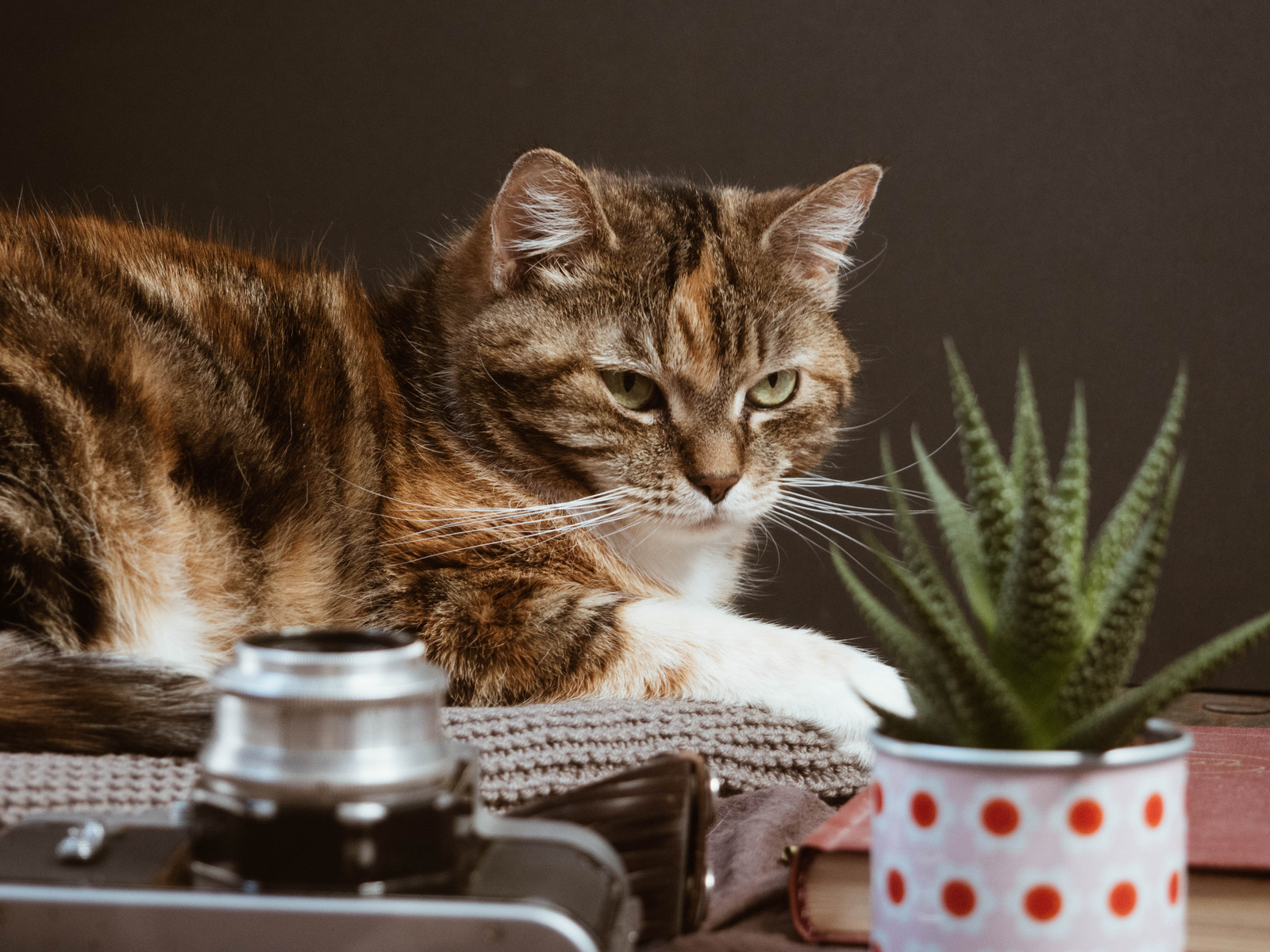House plants are wonderful living creatures who help us enjoy our homes but may not always be friendly for our dear pets. Cats, particularly kittens, are by nature inquisitive and may decide that beautiful plant Aunt Minnie gave you looks like fun. But if they decide to also ingest it, a trip to the vet may be on the horizon.
March is Pet Poison Prevention Awareness Month and was designated to bring about awareness of the toxins and dangers in and around your home that can cause harm to your pet. One of the biggest dangers can be your decorative house plants.
There are many plants that are poisonous to our animals, but the following are a few of the more common plants that should be kept out of reach.
- Aloe Vera – a wonderful burn/skin remedy for humans, but our pets may experience vomiting, diarrhea, and tremors if they ingest it.
- Lillies – inside or outside lilies are extremely toxic to cats and can lead to immediate kidney failure.
- Jade Plant – a common houseplant because they are so easy to grow, but if your pet ingests it, vomiting and a slow heart rate may be experienced.
- Dieffenbachia or “Dumb Cane” – a low maintenance plant for humans but can cause severe swelling of the mouth and tongue, leading to difficulty breathing and swallowing.
- Devil’s Ivy – that easy to grow, hard to kill vining pretty plant that if ingested may cause burning of the mouth, tongue and lips, excessive drooling, vomiting, and difficulty breathing.
- Poinsettia leaves, stems and flowers are extremely toxic to animals and the entire Castor Bean plant is poisonous.
- Some outdoors plants to be avoided include hyacinth, narcissus and daffodils, especially the bulbs.
The ASPCA Animal Poison Control Center (APCC) is a wonderful resource for any animal poison-related emergency, 24 hours a day, 365 days a year. You can view a complete list of poisonous plants by visiting https://www.aspca.org/pet-care/animal-poison-control/.
If you think your pet may have ingested a potentially poisonous substance, call the Animal Poison Control Hotline at (888) 426-4435.
Pets are our dear friends so be sure to place your plants out of their reach and be aware of their activities within and outside your home.

